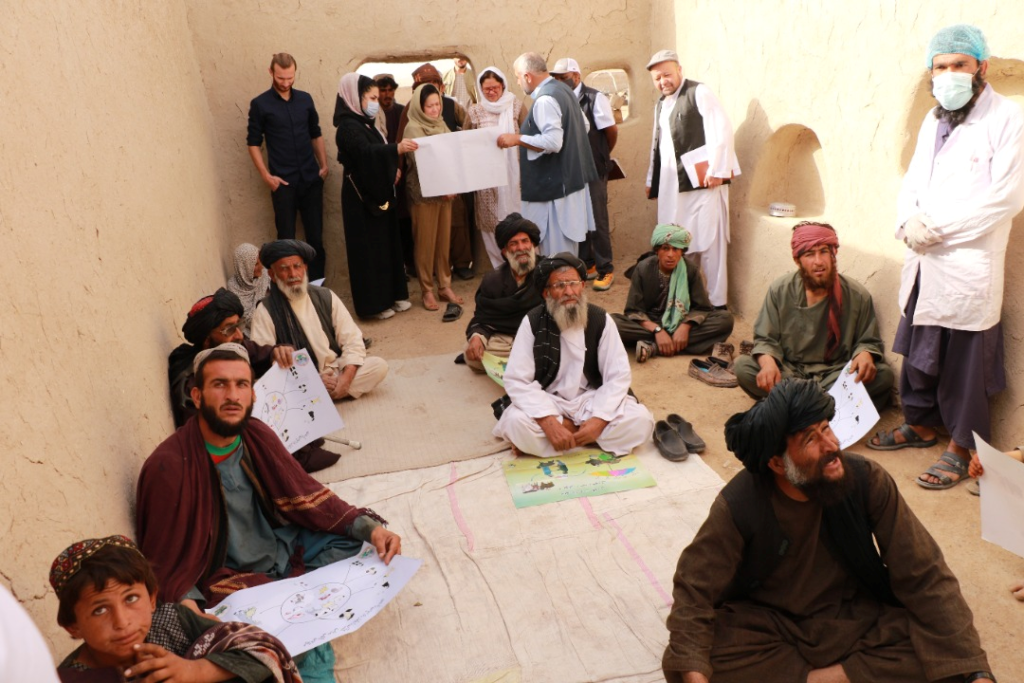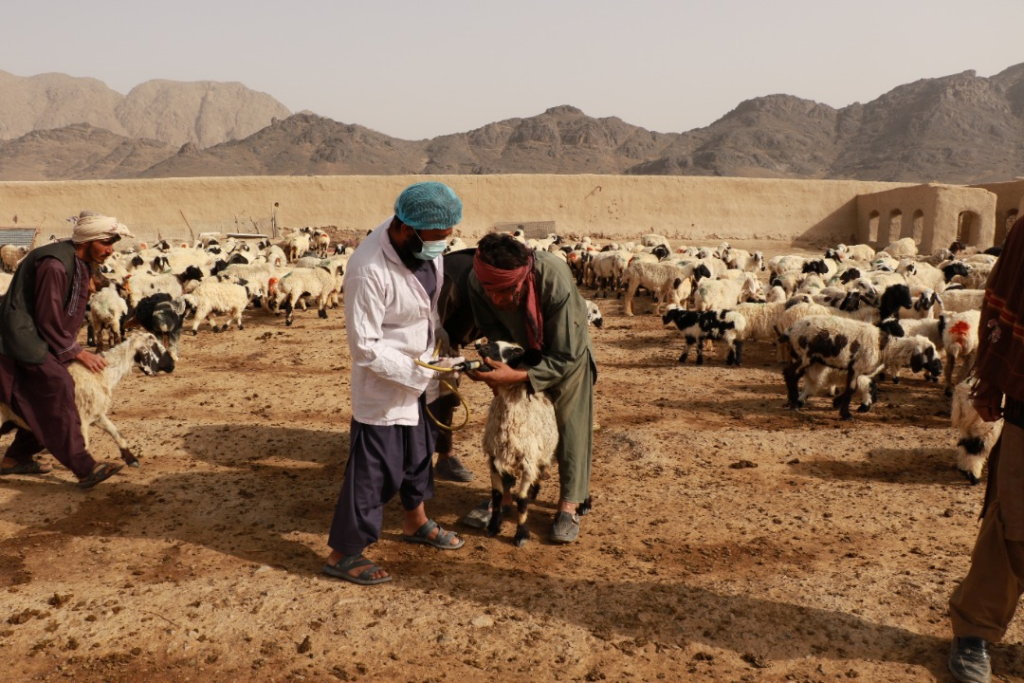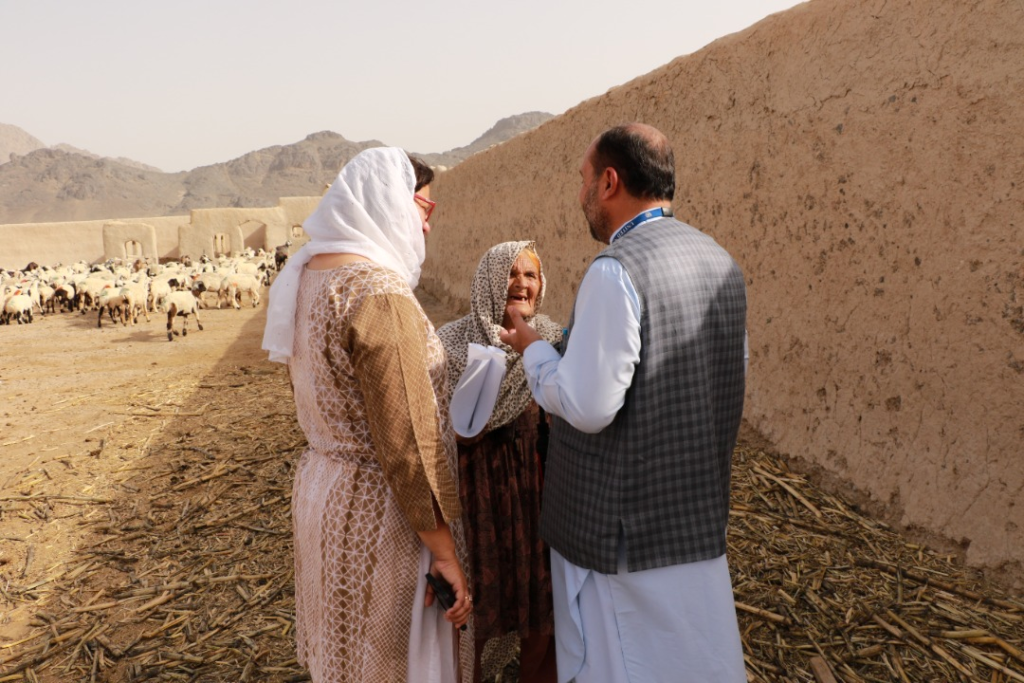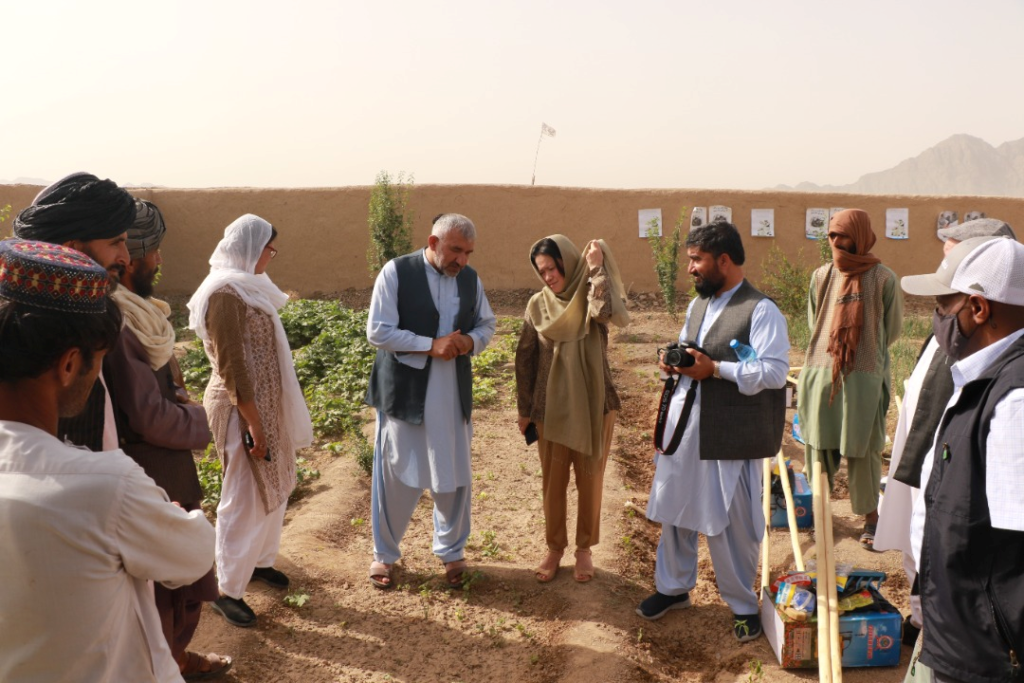Address:
- Street # 5 of Syloo, House # 152-153, District 3, Kabul, Afghanistan
- info.afg@dca-af.org
- Sun - Thu: 8.00 AM to 4.00 PM
Five senior leadership team members of UNODC (United Nations Office on Drugs and Crime) from Kabul and HQ visited DCA’s project activities in Kandahar. UNODC and DCA partnered in conducting a project named “Food Security, Livelihoods Protection and Alternative Development through Licit Means in Kandahar Province in Southern Afghanistan”. The focus of the project is to reduce poppy production and trade in Kandahar province through food security and alternative livelihoods opportunities. The general objective of the project is “To boost food security, improve livelihoods, increase income and create jobs for 2,050 vulnerable households through engagement in licit agriculture, and value chain development in 6 districts of Kandahar Province.”
Specific activities of the project include:
Ø Maintaining the Cereal Crop Production (specifically Wheat and Maize)
Ø Improving high value crops (Saffron and vegetable production)
Ø Enhancing animal husbandry and fodder crop production (treatment and vaccination of livestock, extension, fodder seeds, and feed distribution)
Ø Sustaining backyard poultry farming for self-employment and empowerment of 150 rural women.
Ø Supporting and rehabilitating irrigation infrastructure.
Ø Linkage and support of agricultural associations.
The visitors were able to see extension services on animal health/production, vegetable improvement, and a deworming campaign of shoats in Daamrasi and Salihan villages of Panjwayee District.

The deworming campaign is planned to cover 20,000 sheep, goats, and cows. The initial campaign dewormed 5,726 animals. Based on physical inspection, the animals showed mucosal nasal discharges, and the veterinarians suspected that the shoats might be infected by lung worms or an upper respiratory disease. The campaign is very useful to control internal parasites including lung worms.

“What are the benefits of the deworming campaign in reducing poppy production”, asked by one of the UNODC visitors. The responses are similar across the board. “Poppy production is haram (not allowed by Islam) but we do it as we have no other choices to keep our families alive. If access to animal health, production and marketing is improved, we don’t want to harvest or trade poppy.”

The farmers at the vegetable production locations confirmed that the beneficiaries are satisfied by the services so far. The visitors also distributed farm tools and equipment such as shovels, racks, gloves, sprayers, spray cloths, eyeglasses, and a weeding kit to the farmers. The farmers requested to expand their vegetable production land, support to increase the amount of water, greenhouses for winter harvest, packaging, and marketing of the vegetables.

The project started a month ago and the DCA team promised to strengthen the marketing of vegetables, and livestock through value chain analysis and market linkages. The DCA team further discussed with the visitors to work on watershed management which improves livestock feed, increases ground water, and decreases soil erosion in the longer term.
UNODC and DCA partnered
to implement a similar
project in 6 provinces of central
Afghanistan from 2017 to
2020. Impressive impacts were
accomplished by the project that led to a better well-being, economic
development, an increment
increase of income by 30-
40%, and job creation through local
entrepreneurship and market linkages. Above all, the project was able to reduce illicit agriculture,
and replace it with alternative livelihoods such as poultry and dairy value chains,
feed banks, promotion of artificial insemination
(AI), kitchen gardening, and awareness to prevent the spread of COVID-19. A turning point in relation to cross-cutting themes such as gender balance was established through training of 38 female animal health workers, several extension officers, and women beneficiaries.
